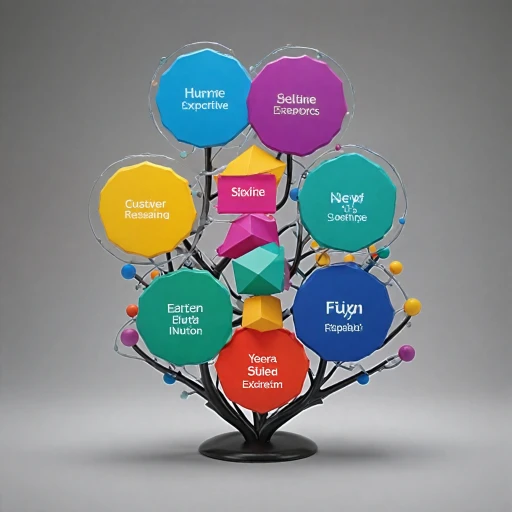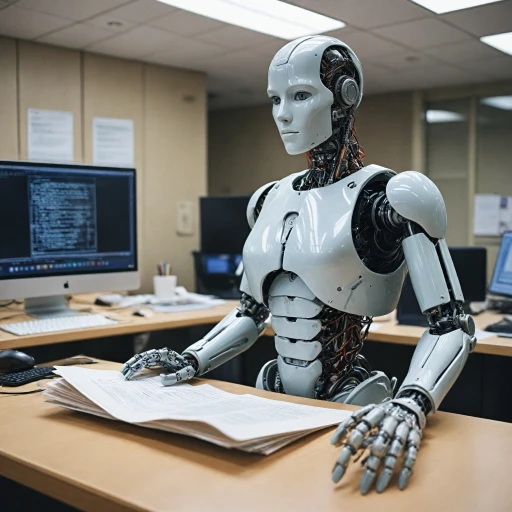
Understanding Strategic Human Capital Management
Gaining Insight into Human Capital Management
Strategic human capital management (HCM) is at the forefront of modern business strategies, playing a crucial role in aligning workforce management objectives with broader company goals. At its core, strategic HCM emphasizes the optimization of workforce potential through effective human capital strategies, performance management, and comprehensive employee development plans. These integrated approaches are designed to enhance both individual and organizational performance over time. The strategic HCM framework underscores the importance of identifying and cultivating an organization's human resource capacity as a key asset. By leveraging strategic insights, companies can develop and sustain a skilled and motivated workforce, thereby aligning employee efforts with business strategy goals. This not only supports long-term success but also contributes to improving workforce efficiency and overall management. Key Components of Strategic HCM:- Talent Management: Involves attracting, retaining, and developing high-performing employees who can help achieve strategic company goals.
- Performance Management: Encourages optimal employee performance through regular assessments, feedback, and goal setting.
- Benefits Administration: Ensures employee satisfaction and alignment with business objectives by managing payroll and benefits effectively.
- Training and Development: Focuses on skill enhancement and career growth, vital for workforce advancement.
The Role of AI in Human Resources
The Transformative Power of AI in HR
AI has emerged as a transformative force in human resources, reshaping how companies approach workforce management and strategic human capital management. As organizations strive to align their business strategy with operational efficiency, the integration of AI-driven technologies becomes essential. AI optimizes resource management by offering advanced data analytics capabilities, helping companies make informed decisions that seamlessly blend with strategic human HCM initiatives. For instance, AI-driven performance management tools analyze employee data, providing insights into workforce trends and identifying areas for improvement. Moreover, AI comprehensively enhances benefits administration and payroll processes, reducing manual errors and ensuring compliance with regulatory standards. This efficiency not only saves time but also aligns with company goals to achieve better overall performance. Incorporating strategic HCM solutions, such as AI-powered platforms, introduces new dimensions to management strategies. These platforms streamline employee engagement and development, facilitating strategic planning and goal-setting aimed at boosting workforce productivity. AI also recognizes patterns within human resource practices, offering a strategic lens to enhance employee experiences and refine hcm strategies. As companies adopt AI to propel their HCM plans forward, they come closer to their strategic objectives. For more on AI’s influence on HR, its tools, and metrics, you can dive deeper into understanding AI code verifier performance metrics. This resource will help businesses leverage AI for strategic advantage in human capital management.AI-Driven Talent Acquisition
Revolutionizing Talent Acquisition in a Strategic Era
Artificial intelligence is not just an emerging tool in human resources; it’s a catalyst that transforms how organizations manage their talent acquisition process. With strategic human capital management at the forefront, AI enables a company to seamlessly align its human resource strategies with broader business strategies.
In today's competitive landscape, AI-driven talent acquisition empowers businesses to enhance their workforce by identifying the most suitable candidates efficiently. Leveraging advanced algorithms, AI analyzes vast datasets quickly, ensuring that organizations can pinpoint candidates whose skills and experience align with company goals, thus optimizing the recruitment funnel.
But how does this translate into practical management strategies? Here are a few ways AI helps in recruitment:
- Real-time Candidate Screening: AI systems evaluate resumes and application forms swiftly, filtering candidates who meet specific criteria faster than traditional methods, thus saving valuable time and resources.
- Enhanced Candidate Engagement: By automating communications, AI ensures timely follow-ups and interactions, maintaining candidates' interests and improving the overall experience.
- Predictive Analytics for Better Matches: AI uses historical data to predict a candidate's future performance and cultural fit, aligning recruitment efforts with the strategic HCM plan.
AI's integration into strategic HCM offers businesses a robust HCM solution that not only meets the demands of the current workforce but is also adaptable for future needs. By automating processes like resume sorting and enhancing candidate interaction, AI allows human resource teams to focus on complex tasks that require a personal touch.
As companies look to achieve goals with a strategic and efficient team, harnessing AI's power in talent acquisition will aid in building a resilient and skilled workforce. Employing AI-driven strategies not only streamlines operations but also enhances performance management by ensuring that the right talent is in place to drive success.
Incorporating AI in these ways is indicative of a broader shift within businesses towards smarter, more strategic HCM solutions that not only support strategic business initiatives but also foster an environment where employees are integral to achieving business goals.
Optimizing Employee Performance with AI
Leveraging AI for Enhanced Employee Performance
Incorporating AI in performance management is transforming how businesses monitor and optimize the productivity of their workforce. By employing advanced algorithms, AI tools can analyze vast amounts of data related to employee performance, offering strategic insights that were previously unattainable through traditional human resource management methods. AI facilitates personalized feedback loops, allowing managers to tailor incentives and training programs that align with both the company goals and individual employee objectives. Such personalized approaches not only support employees in achieving their goals but also enhance overall business operations. By recognizing patterns and predicting outcomes, AI empowers human resource departments to implement strategic HCM strategies efficiently. Moreover, AI advancements in real-time data analytics help businesses make informed decisions, which are crucial for strategic human capital management. Data-driven insights enable companies to swiftly identify areas of improvement, ensuring that employees are working efficiently towards established goals. Furthermore, utilizing AI-driven platforms can automate routine performance reporting tasks, saving valuable time for managers and human resource professionals. AI tools may also offer predictive analysis capabilities. This foresight aids in preemptively addressing potential performance issues, thereby preventing problems before they impact the workforce significantly. Thus, integrating AI into workforce management not only optimizes employee performance but also strengthens the overall strategic framework of human resource management. While the integration of AI in performance management offers significant advantages, businesses must approach these technologies thoughtfully. By crafting an astute plan that aligns with both human needs and company requirements, businesses ensure that the potential benefits of AI are fully realized, fostering a dynamic and effective workplace environment.AI in Employee Development and Training
Empowering Employee Growth with AI-Driven Training
The integration of artificial intelligence in strategic human capital management is reshaping the way companies approach employee development and training. AI-powered solutions are providing tailored learning experiences while aligning with company goals and workforce strategies. AI and strategic HCM strategies pave the way for personalized training development plans tailored to individual employees' needs. By analyzing employee performance data, AI can identify skills gaps and propose tailored learning modules, facilitating continuous growth and enabling employees to perform at their best.- Customization and Flexibility: One of the standout benefits is the ability to customize training programs. AI-driven platforms can assess an employee's current skills and predict future needs, offering flexibility and strategic HCM adaptability in training delivery.
- Performance Management: These tools play a vital role in optimizing performance management. By providing real-time feedback and adjusting training paths based on an employee’s progress, AI ensures that employees remain engaged and motivated, contributing to achieving performance goals.
- Time and Cost Efficiency: AI solutions streamline the administration of training programs, reducing the time and resources needed. Businesses can manage training development with precision, freeing HR teams to focus on strategic workforce management tasks.













